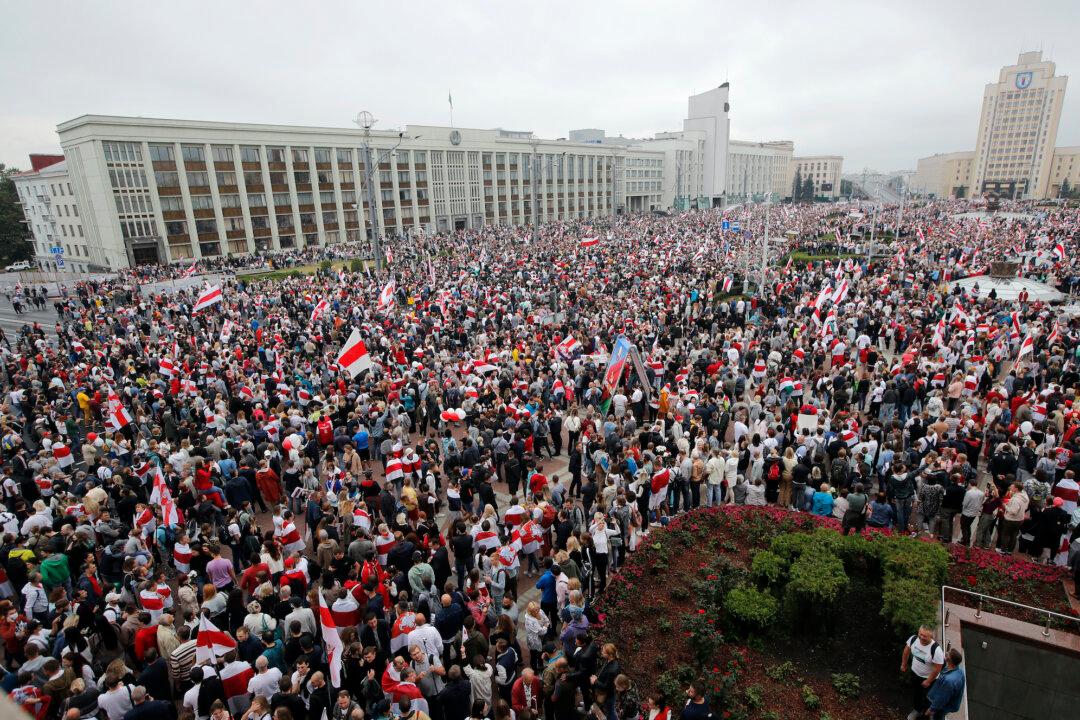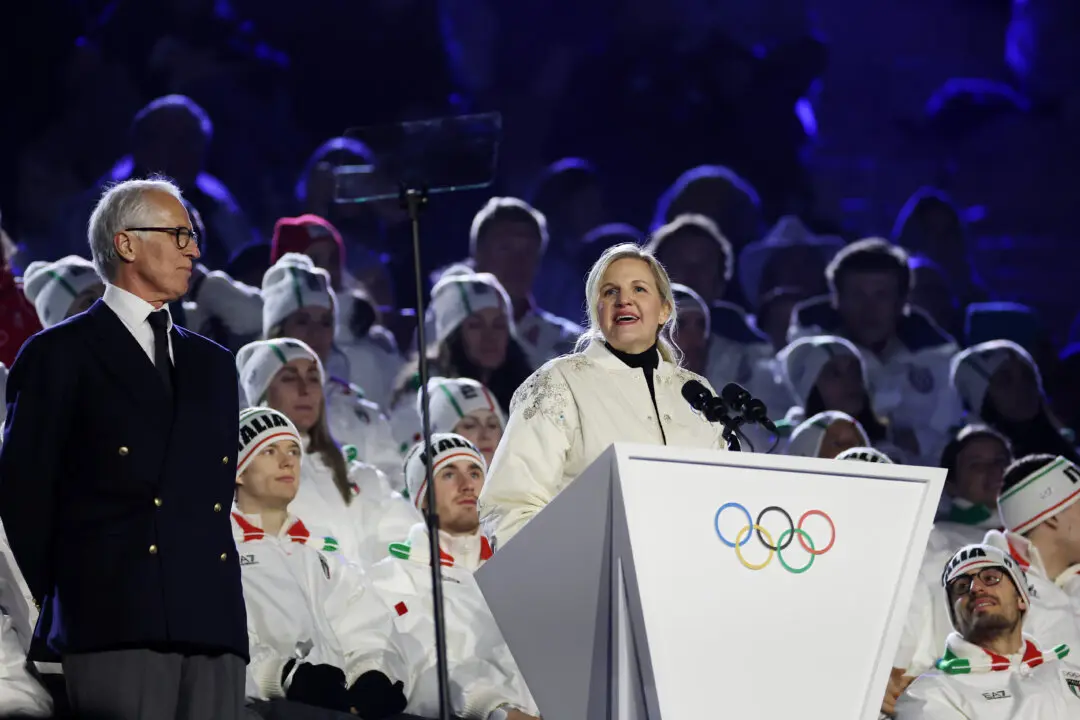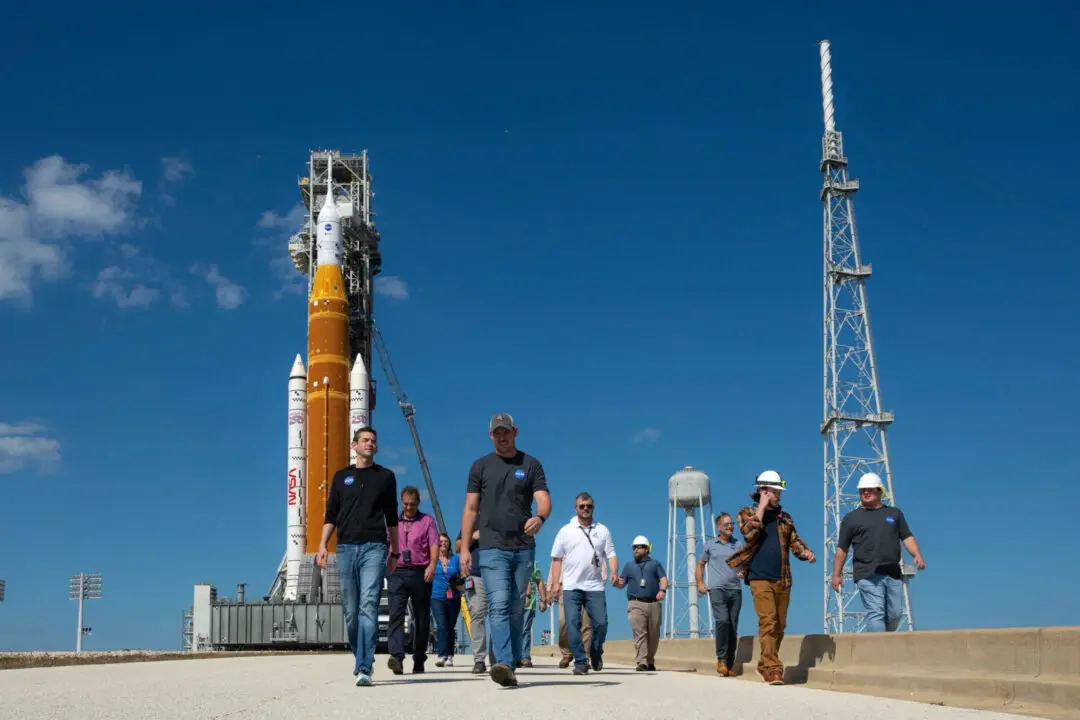MINSK, Belarus—More than 100,000 protesters demanding the resignation of Belarus’s authoritarian president converged Aug. 23 in a vast square in the capital, keeping up the massive outburst of dissent that has shaken the country since a disputed presidential election two weeks ago.
The demonstration overflowed Minsk’s sprawling 7-hectare (17-acre) Independence Square. While there were no official figures on crowd size, it appeared to be 150,000 people or more.





